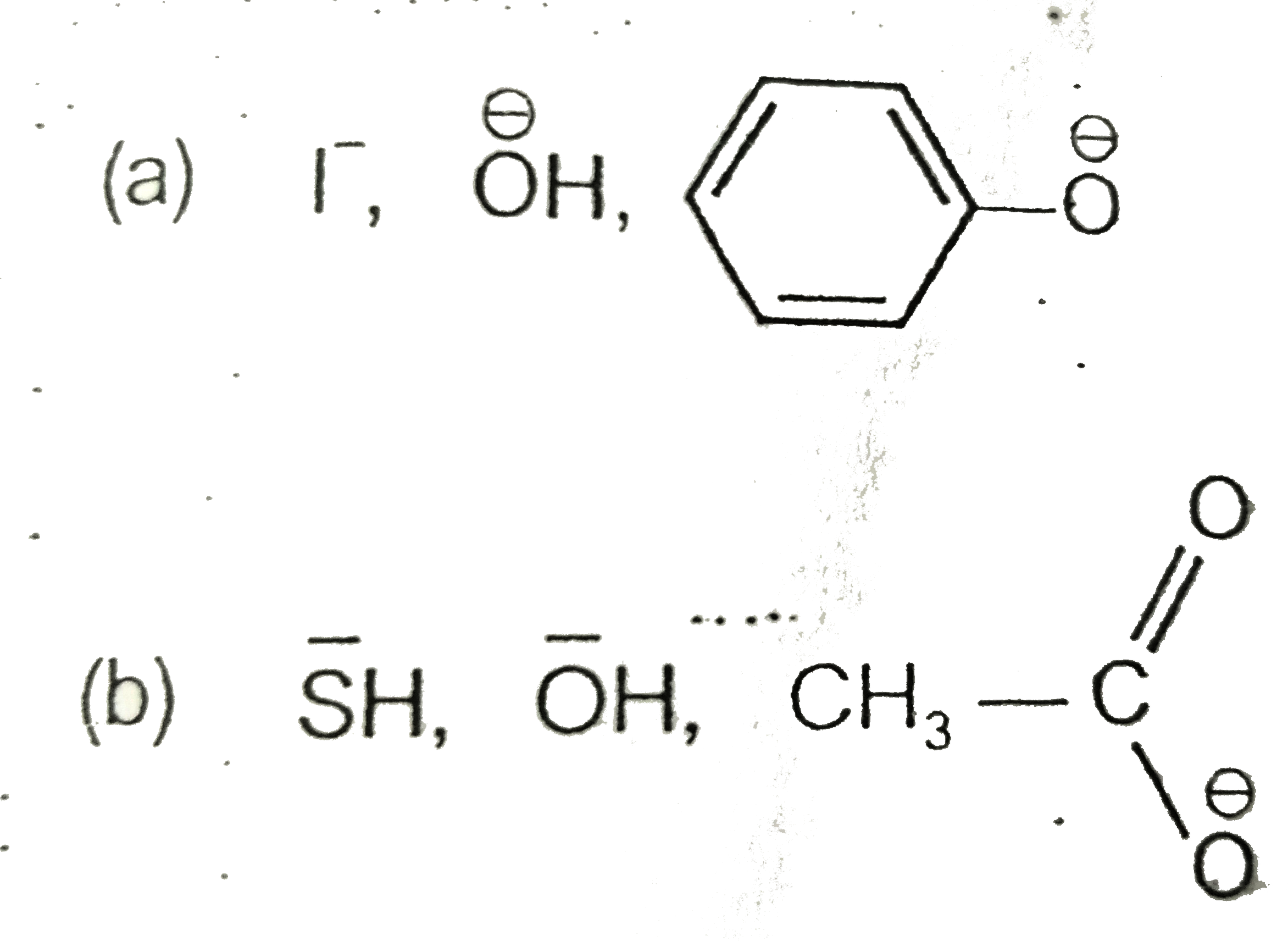Cyanide ion acts as an ambident nucleophile. From which end it acts as a stronger nucleophile in aqueous medium ? Give reason for your answer. Solution in Gujrati
:−C≡NΘ acts a stronger nucleophile from carbon end because it will lead to the formation of C - C bond which is more stable than the C - N bond if linkage is from Nitrogen side.
Topper's Solved these Questions
- BOOK - KUMAR PRAKASHANCHAPTER - HALOALKANES AND HALOARENESEXERCISE - SECTION - D NCERT EXEMPLAR SOLUTION (Matching The Columns)6videos
HALOALKANES AND HALOARENES
- BOOK - KUMAR PRAKASHANCHAPTER - HALOALKANES AND HALOARENESEXERCISE - SECTION - D NCERT EXEMPLAR SOLUTION (Assertion and Reason Type)10videos
HALOALKANES AND HALOARENES
- BOOK - KUMAR PRAKASHANCHAPTER - HALOALKANES AND HALOARENESEXERCISE - SECTION - D NCERT EXEMPLAR SOLUTION (Multiple Choice Questions)43videos
HALOALKANES AND HALOARENES
- BOOK - KUMAR PRAKASHANCHAPTER - GENERAL PRINCIPLES AND PROCESSES OF ISOLATION OF ELEMENTSEXERCISE - SECTION - E (MCQs ASKED IN GUJET/BOARD EXAMS)46videos
GENERAL PRINCIPLES AND PROCESSES OF ISOLATION OF ELEMENTS
- BOOK - KUMAR PRAKASHANCHAPTER - POLYMERSEXERCISE - SECTION - E (MCQs asked in Board Exams)51videos
POLYMERS
Similar Questions
Match the compounds given in Column - I with the effects given in Column - II.
Column - IColumn - II(i)Chloramphenicol(a)Malaria(ii)Thyroxine(b)Anaesthetic(iii)Chloroquine(c)Typhoid fever(iv)Chloroform(d)Goiter(e)Blood substituent02:08View SolutionAssertion (A) : Phosphorus chlorides (tri and penta) are preferred over thionyl chloride for the preparation of alkyl chlorides from alcohols.
Reason (R ) : Phosphorus chlorides give pure alkyl halides.View SolutionThe order of reactivity of following alcohols with halogen acids is ………
(A) CH3CH2−CH2−OH
(B) CH3CH2−C | CH3H−OH
(C ) CH3CH2−CH3| C | CH3−OH05:27View SolutionDuring electrolysis of aqueous solution of Na2SO4 using graphite electrode .........
02:08View SolutionWhich polymer is used in preparation of capsules ?
02:47View SolutionCyanide ion acts as an ambident nucleophille. From which end it acts as a strong nucleophile in aqueous medium? Give reason for your answer.
02:50View SolutionAssertion: Ethyl bromide reacts with alcoholic silver cyanide solution to give ethyl carbylamine as the major product.
Reason: CN− ion is an ambident nucleophile.View SolutionCompare the nucleophilicity of given nucleophilies in aqueous medium Give explanation for your order
 03:45View Solution
03:45View SolutionCyanide ion acts as an ambident nucleophille. From which end it acts as a strong nucleophile in aqueous medium? Give reason for your answer.
View SolutionAssertion: Treatment of chloroethane with a saturated solution of AgCN gives ethyl isocyanide as the major product. Reason: Cyanide ion (: CN^(-)) is an ambident nucleophile.
03:36View SolutionCyanide ion acts as an ambident nucleophilie. From which end it acts as a stronger nucleophile in aqueous medium? Give reason for your answer.
00:52View SolutionAssertion : Treatment of chloroethane with saturated solution of AgCN give ethyl isocyanide as major product. Reason : Cyanide ion (CN^(-)) is an ambident nucleophile.
01:29View SolutionWhich can not act as an ambident nucleophile ?
01:31View SolutionCyanide ion acts as an ambident nucleophile. From which end it acts as a stronger nucleophile in aqueous medium ? Give reason for your answer.
02:56View SolutionCyanide ion acts as an ambident nucleophille. From which end it acts as a strong nucleophile in aqueous medium? Give reason for your answer.
03:53View Solution
